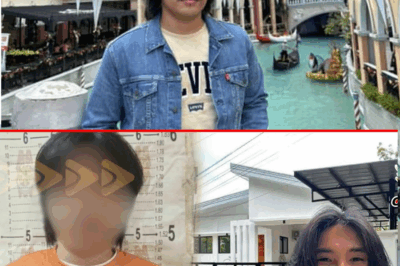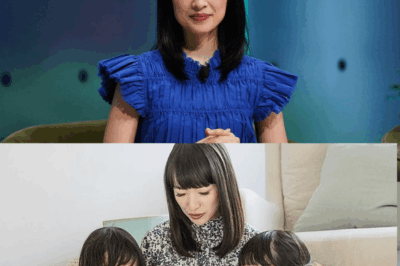It was the kind of calm that made people uneasy.
When Vic Sotto, the iconic comedian and showbiz veteran, finally spoke about Darryl Yap’s much-publicized “not guilty” plea in the cyberlibel case he filed, his response wasn’t angry or dramatic. It wasn’t even defensive.
“O, ‘di good,” he said with a half-smile.
And just like that, the atmosphere shifted.
It wasn’t just about a courtroom battle anymore. It was about a story long buried—one that has haunted Philippine pop culture for decades—and now, it was threatening to surface again, louder and more divisive than ever.
This isn’t just another celebrity tiff. This is a war involving power, history, justice—and a name that never seems to fade: Pepsi Paloma.
In the heart of the controversy is a teaser for Darryl Yap’s unreleased film titled “The Rapists of Pepsi Paloma.” In it, Sotto’s name is indirectly referenced, bringing back to life the ghost of a scandal many thought had long been laid to rest.

The teaser outraged many, but it struck a deeper nerve for Sotto. His legal team responded with two cyberlibel complaints, citing the violation of Articles 353 and 355 of the Revised Penal Code, and the Cybercrime Prevention Act of 2012. The charges were serious. But Darryl Yap wasn’t backing down.
When Yap finally appeared before the Muntinlupa Regional Trial Court on June 3, 2025, he entered a clear plea: “Not guilty.”
And suddenly, everyone waited to hear what Vic Sotto would say.
The media hounded him during a promotional event. Was he furious? Did he plan to push for settlement? Was there a behind-the-scenes truce?
But Vic, ever composed, only said:
“I cannot talk about it kasi it’s ongoing. Saka ako, naniniwala ako na gumugulong ang justice system natin. Nakikita naman natin. So whatever decision of the court will be, e, abangan na lang natin sa susunod na kabanata.”
Translation: Let the court decide. Wait for the next chapter.
It wasn’t a denial. It wasn’t a threat. It was something more chilling—a promise that he wasn’t walking away.
The backlash surrounding Yap’s film teaser has divided fans, critics, and the legal community.
Some defend Yap, arguing that art has the right to provoke, even offend. Others say this crosses a line—turning real trauma into entertainment, without consent, and possibly causing irreparable damage to those involved.
For Vic Sotto, this isn’t just about artistic choices. It’s about protecting a legacy he has built over four decades—one now being questioned by a film that hasn’t even been released.
But is there more to his silence than professionalism?
According to Sotto’s lawyer, Atty. Enrique Dela Cruz, there has been no discussion of any amicable settlement as of yet. When asked whether Vic was open to dialogue, the answer was simple: “His instruction was to proceed with the trial.”
Those words carried weight.
Vic isn’t interested in negotiations. Not yet. Maybe not ever. He wants the court to decide—not the public, not the press, not the noisy corners of social media.
But why now? Why fight this publicly after all these years?
Perhaps the answer lies in the story that refuses to go away—the story of Pepsi Paloma.
Pepsi Paloma was just 15 when she accused three actors—Vic Sotto, Joey de Leon, and Richie D’Horsie—of rape in the early 1980s. The case was controversial, chaotic, and later dropped after a public apology and alleged pressure behind the scenes.
Shortly afterward, Paloma was found dead. Officially, it was ruled a suicide. But many have doubted that explanation for decades.
The scandal has lived in the shadows of Philippine showbiz, whispered about but never fully addressed. Now, with Yap’s film bringing the case back to light, those whispers are becoming shouts.
And Vic? He’s back in the spotlight—this time, not as a comedy icon, but as a man defending his name in a courtroom.
Online, the reactions have been fierce. Some hail Vic for taking a stand. Others support Yap for confronting what many see as an unfinished chapter of Philippine history. And in between, thousands are just watching—unsure, uncomfortable, and wondering where this will all lead.

One viral comment captured the mood perfectly:
“This isn’t just about Darryl or Vic. This is about the things we never dealt with as a country. About victims who never got justice. And about people who think time erases everything.”
No matter how this case ends, one thing is clear: this is no longer just about a teaser. It’s about truth, legacy, and the unresolved past that refuses to stay quiet
The next hearing is scheduled for August 19, but the court of public opinion is already in session. As more details surface and more voices join the debate, the pressure is mounting—not just on the legal teams, but on the conscience of an entire industry.
Vic Sotto’s silence might be calculated, but it speaks volumes.
Darryl Yap’s “not guilty” plea might be legal strategy, but it opens doors to uncomfortable questions.
And the rest of us? We’re left to wonder: when truth and storytelling collide, who gets to tell the final version?
This case may be about cyberlibel. But its consequences are far-reaching. It’s a collision of power, past trauma, and public memory. For Vic Sotto, it’s a battle to reclaim control over his story. For Darryl Yap, it’s a challenge to push boundaries in a country where silence has too often been the rule.
Whatever the verdict, the country is listening.
Because sometimes, the quietest answers reveal the loudest truths.
News
Behind the Drama: What Really Sparked the Xian Gaza, Ivana Alawi, and Benitez Scandal?
It started with a post. Then another. Before anyone could catch their breath, the names Xian Gaza, Ivana Alawi, and…
How Not to Cancel a Wedding: Lessons from Bea and Dominic’s Split That Shocked Fans
The sudden split between Bea Alonzo and Dominic Roque sent shockwaves through their fans and the entertainment world alike. Once…
Vlogger Boy Tapang Surrenders Over VAWC Case: What Really Happened?
Just a few months ago, Boy Tapang’s name was synonymous with thrill-seeking adventures, eccentric challenges, and raw, unfiltered energy that…
Missing No More: Karen Lopez and Boyfriend Resurface, Reveal Real Reason Behind Vanishing
She was once a rising face in Vivamax films, admired for her daring roles and raw talent. But in a…
‘Spark Joy’ Creator Marie Kondo Talks Chaos, Motherhood, and New Perspective
Marie Kondo, the global icon of decluttering, has built an empire teaching people how to live with less, find joy…
K Brosas Opens Up to Fans: Reflections on 25 Years of Career and Surprises
K Brosas, a beloved figure in the Philippine entertainment industry, has spent 25 years captivating audiences with her wit, humor,…
End of content
No more pages to load












